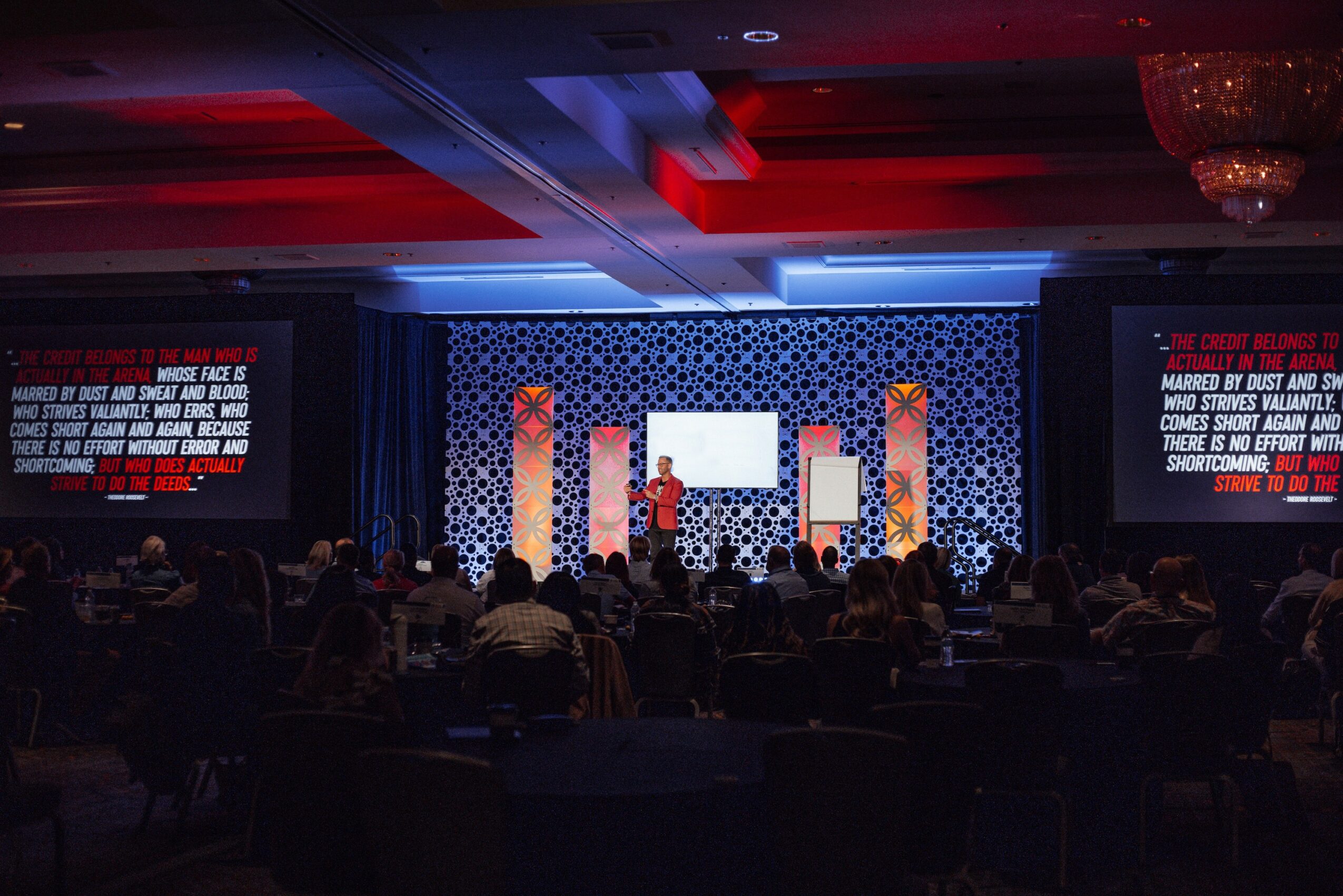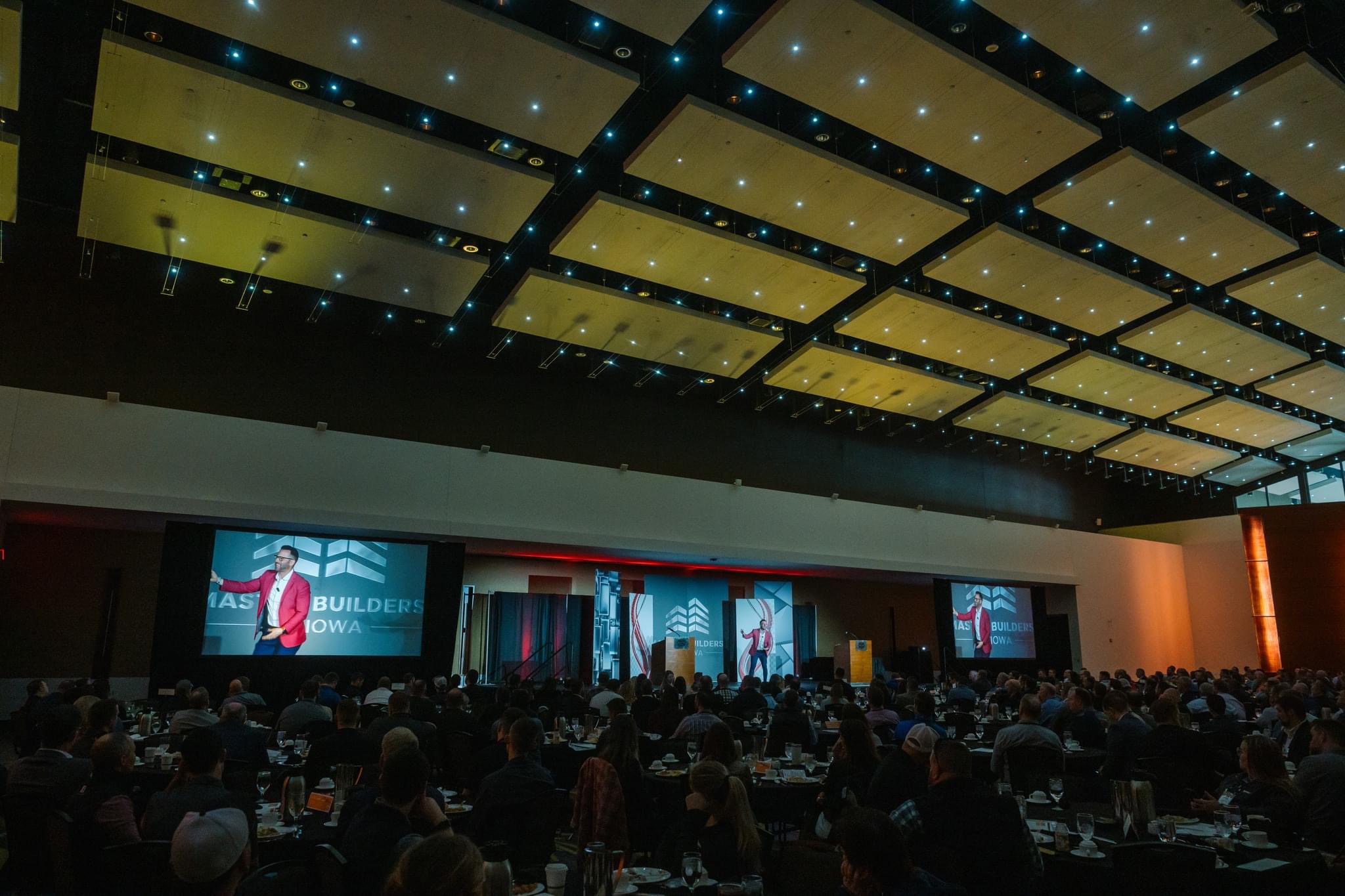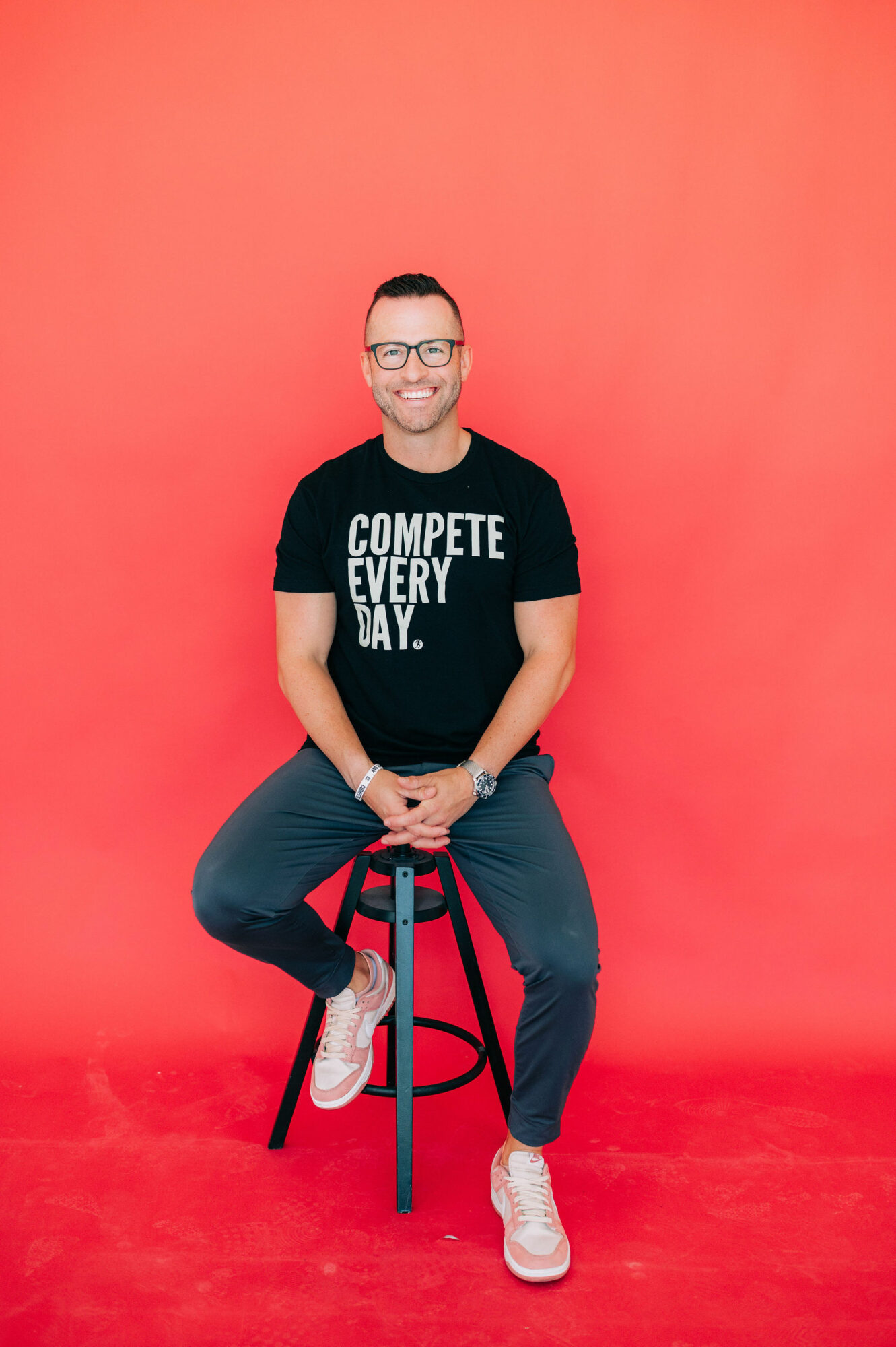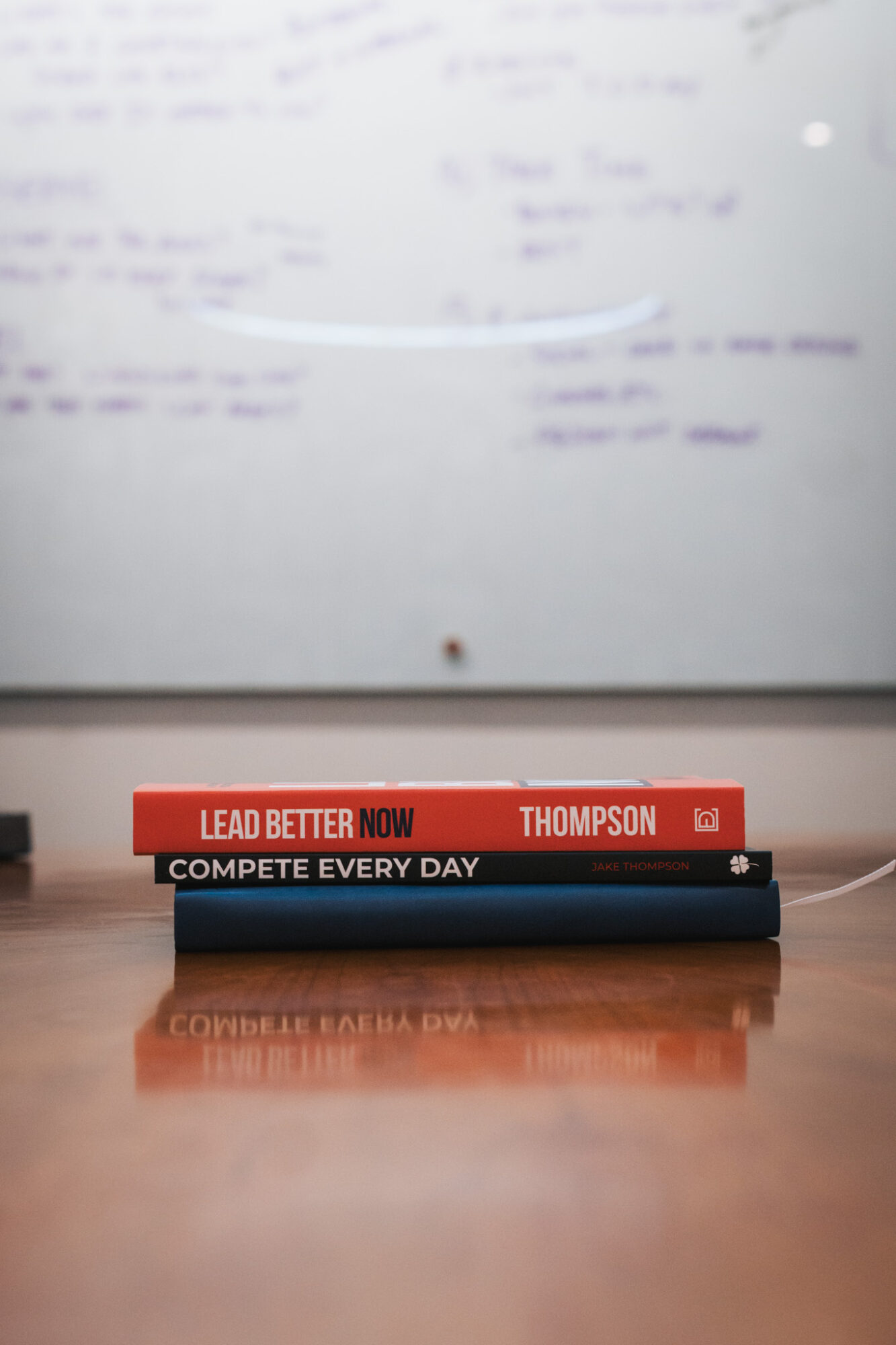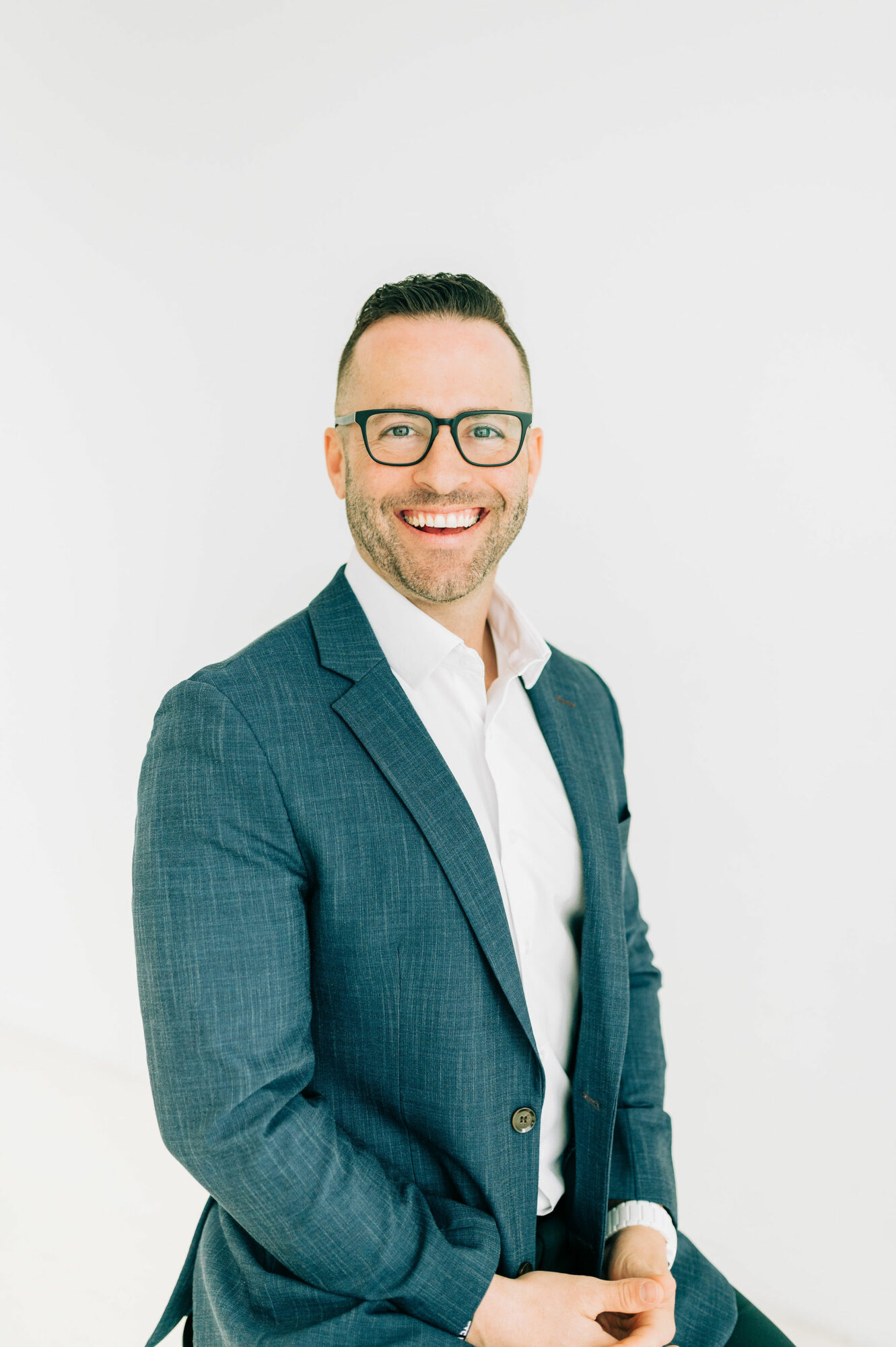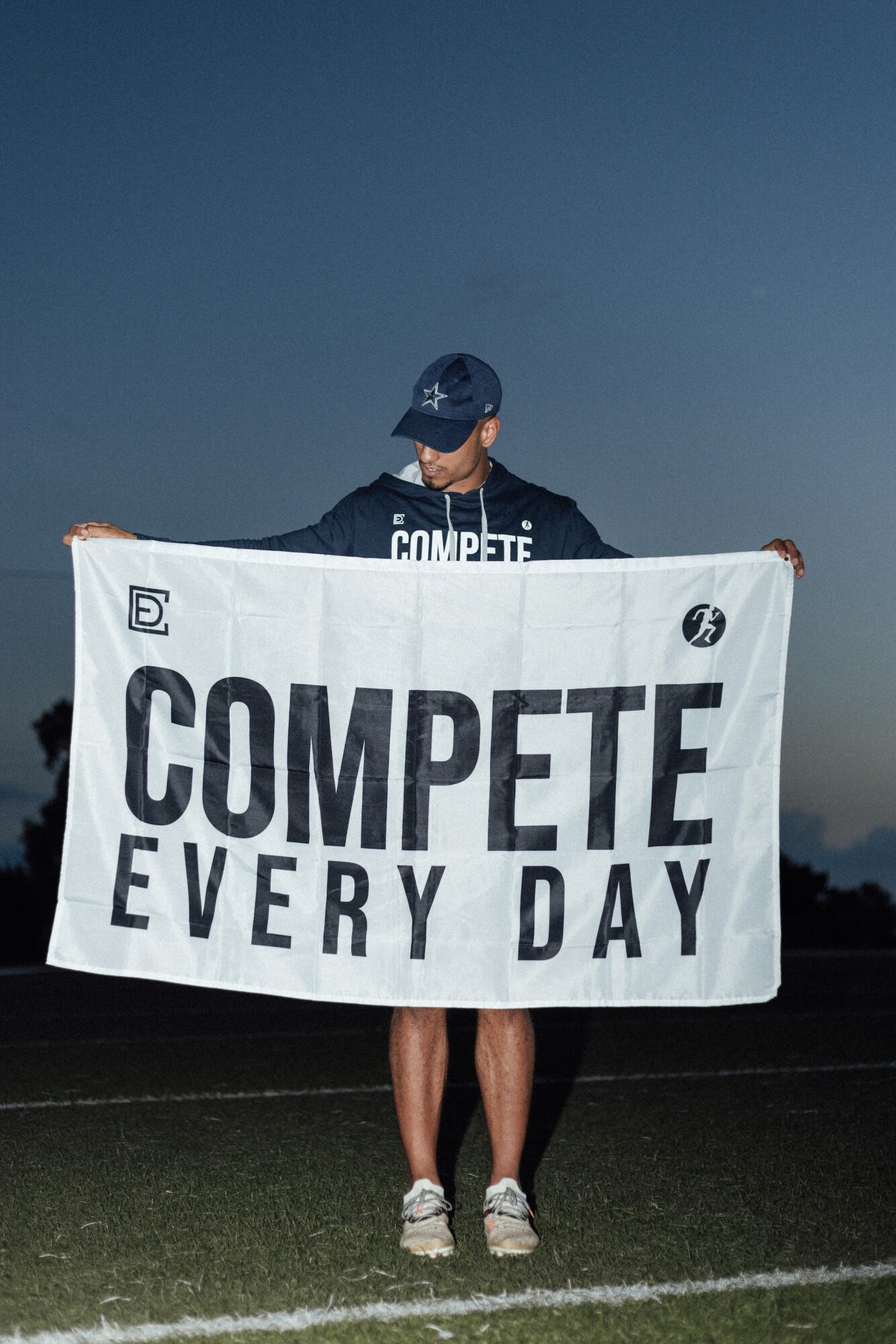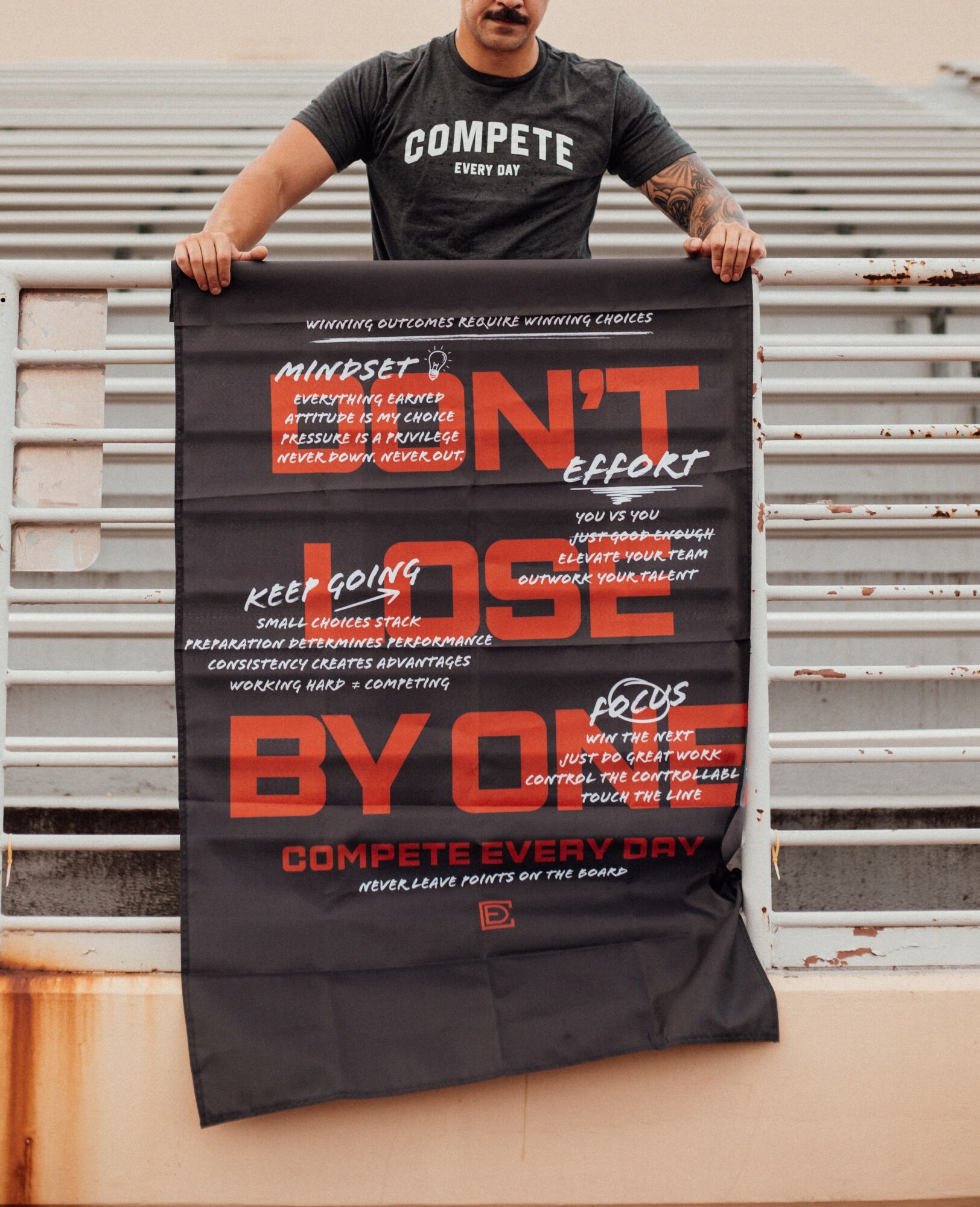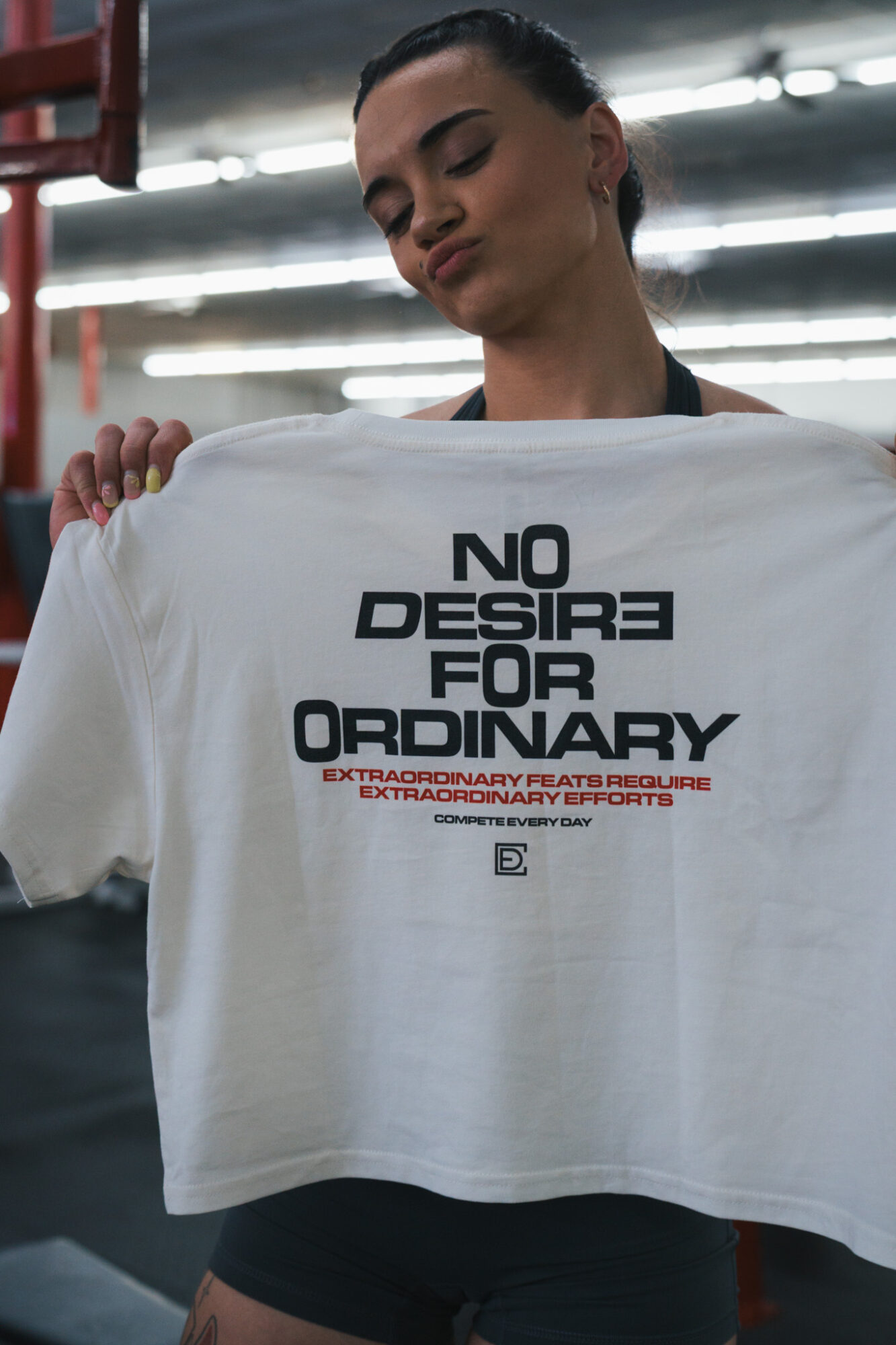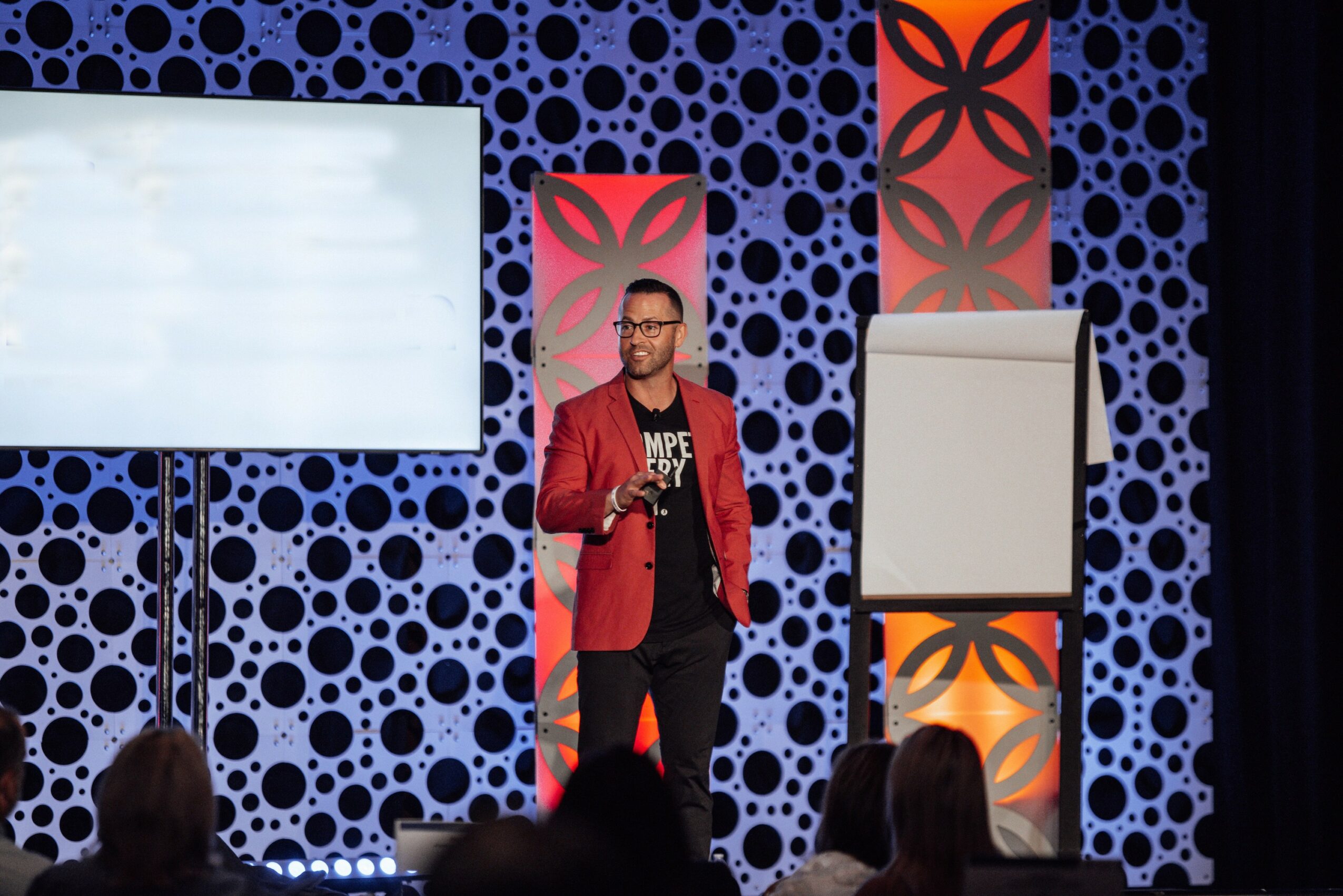

We recently had the chance to connect with Jake Thompson and have shared our conversation below.
Good morning Jake, we’re so happy to have you here with us and we’d love to explore your story and how you think about life and legacy and so much more. So let’s start with a question we often ask: What do you think is misunderstood about your business?
Most people see the keynote speeches or the “Compete Every Day” gear and think they understand what I do – but they’re only seeing 5% of the actual business.
Here’s the truth: I started Compete Every Day in 2011 selling shirts out of my trunk. For years, people knew us as an apparel brand. But the business evolved. Today, I’m a professional speaker who works with organizations on high-performance culture – and even that isn’t what most people think it is.
The speaking business isn’t about being great on stage. It’s about getting on the stage. Less than 5% of my time is spent actually delivering keynotes. The other 95%? Research. Sales calls. Content creation. Relationship building. Travel logistics. It’s more sales and marketing than it is speaking.
Think of it like professional sports: fans see the game, but they don’t see the film study, the conditioning, the contract negotiations, the media obligations. That’s where the real work happens. Same here. The stage is the performance – but the business is everything that happens before the lights come on.
Can you briefly introduce yourself and share what makes you or your brand unique?
I’m Jake Thompson, and I help competitive leaders build the mindset, grit, and habits they need to perform at their best – every day.
But I wasn’t always that guy.
In my late 20s, I was overweight, drinking too much, and coasting through life without real purpose. Then I read a book that jolted me awake. I realized my story sucked – and that it was up to me to write a better one. So I got to work.
I started hitting the gym again. Dove into everything I could find on mindset, habits, and performance. Day by day, I made small improvements. And people started noticing. They wanted to know how they could make those same changes. That’s when Compete Every Day was born.
I started in 2011 selling motivational t-shirts out of the trunk of my car. Over the next decade, it grew into a global brand reaching leaders in over 62 countries. Today, I’m a keynote speaker and leadership performance coach. I work with organizations – from sales teams to construction companies to nonprofits – teaching them how to compete every day, not against others, but against who they were yesterday
I’ve built frameworks like C.O.M.P.E.T.E.™ that help leaders improve their grit and leadership skills. I’ve written three books, my podcast has over two million downloads, and I’ve directly impacted more than 100,000 leaders. I hold my MBA, a Mental Performance Master certification, and I’m one of only 17% of speakers globally to earn the CSP® (Certified Speaking Professional) through the National Speakers Association.
I live in the Dallas/Fort Worth area with my wife, Elena, and our five rescue dogs—Sugar, Donut, Snacks, Pop-Tart, and Cookie. Yes, we have a theme.
Great, so let’s dive into your journey a bit more. Who taught you the most about work?
My parents, hands down.
I grew up in a small town two hours east of Dallas. My dad owned a few convenience stores, and my mom was an elementary school teacher. Both came from working-class families. My grandfather on my dad’s side was a contractor who built all over North Texas. My mom’s parents were cotton farmers near Lubbock. Work wasn’t just what they did—it was who they were.
I started working in my dad’s stores when I was seven or eight. I wasn’t just sweeping floors or stocking shelves to stay busy, I was watching how a business actually runs. I saw my dad handle employees who stole from him. I watched him figure out how to keep the doors open when sales were down. I saw my mom navigate school budget cuts that directly affected her classroom.
Here’s what they taught me that I carry into every stage and every client conversation today:
– Work ethic isn’t about hours, it’s about showing up when it’s hard. Anyone can work when things are going well. My parents showed me what it looks like to keep going when the odds are stacked against you
– .You can’t control the circumstances, but you can control your response. Whether it was a bad month of sales or a difficult school year, they didn’t make excuses. They adapted. They problem-solved. They competed.
– Your reputation is built in how you treat people when you don’t have to. My dad could’ve cut corners. My mom could’ve phoned it in. They didn’t. They showed up with integrity, even when no one was watching.
That’s the foundation I built Compete Every Day on. Not some motivational poster version of hard work, the real, messy, unglamorous kind that builds something lasting.
What’s something you changed your mind about after failing hard?
That success isn’t about looking successful, it’s about being successful. And I learned that the hard way.
In 2017, I made a bet on myself. I pivoted Compete Every Day from an apparel business into the speaking and coaching work I do today. It felt right. It felt bold. But bold doesn’t pay the bills.
Within months, I was drowning. I had pivoted too fast, taken my eye off of what built the business (clothing and event booths) to focus on this new path, burned through cash, and couldn’t cover basic expenses, much less pay off inventory debt. I remember sitting at my kitchen table one night, staring at an American Express bill I couldn’t pay as they called me repeatedly for payment. And all I could think was, “I might not make it out of this.”
For years, I’d built a brand around competing, around grinding, around showing up. But in that moment? I felt like a fraud. Because from the outside, people saw the keynotes, the podcast, the Instagram posts. They saw someone who had it figured out. However, the truth was that I was buried in debt and barely holding it together.
That night changed everything for me.
I realized I’d been chasing the image of success instead of the reality of it. I wanted to look like I’d made it, so I kept investing in the brand, the production, the appearances, while ignoring the fact that my business model wasn’t sustainable yet. I was so focused on perception that I forgot the fundamentals: cash flow, profitability, runway.
Here’s what I changed my mind about: There’s no shame in doing what you have to do to survive so you can eventually do what you want to do.
I swallowed my pride. I took on side work. I said yes to gigs I didn’t want. I cut every expense I could. I stopped worrying about what people would think if they knew I was struggling. Because I’d rather be scrappy and solvent than polished and bankrupt.
Slowly, I clawed my way out. Not by pretending everything was fine, but by getting real about where I was and doing the unglamorous work to fix it. That season taught me more about competing than any win ever did. It taught me that real competitors don’t quit when things get hard – they adjust. They adapt. They do whatever it takes.
And they beat yesterday, even when yesterday kicked their butt.
Next, maybe we can discuss some of your foundational philosophies and views? Is the public version of you the real you?
100%. One of my core personal values is consistency – be the same person on-stage that I am off of it, online as I am offline. I think this is something I’ve always prioritized and others would vouch for – who you get to know following my online accounts is who you’ll get to meet offline in real life.
Before we go, we’d love to hear your thoughts on some longer-run, legacy type questions. How do you know when you’re out of your depth?
When I feel like an imposter.
And here’s the thing: that’s exactly where I want to be.
Most people treat that feeling like a warning sign. Like their body’s telling them to retreat, go back to what’s comfortable, protect the ego. I call that “The Drift Zone”—the safe place where you’re competent enough that nothing challenges you, but comfortable enough that nothing changes. You’re not failing, but you’re not growing either. You’re just… floating.
Being out of your depth is the only way to grow. It’s the signal that you’re on the edge of a breakthrough, not a breakdown.
Think about it like lifting weights. If you can comfortably do 10 reps, you’re not getting stronger; you’re just maintaining. Growth occurs when you add weight, when your muscles shake, and when you’re unsure you can finish the set. That discomfort? That’s not weakness. That’s adaptation in real time.
So when I’m afraid, when I’m overwhelmed, when I’m genuinely concerned I might not be able to pull something off – that’s when I know I’m positioning myself to level up. Because the alternative is playing it small. And I’ll regret playing it small 100% of the time.
Here’s what I’ve learned: you can either protect your ego or grow your capacity. You can’t do both. The people who win are those who reframe the fear – they see it for what it truly is. Not a stop sign. A starting line.
Contact Info:
- Website: https://www.competeeveryday.com
- Instagram: https://instagram.com/jakethompsonspeaks
- Linkedin: https://linkedin.com/in/jakethompsonspeaks
- Twitter: https://x.com/jakeathompson
- Facebook: https://www.facebook.com/lifeisworthcompetingfor/
- Youtube: https://youtube.com/competeeveryday
